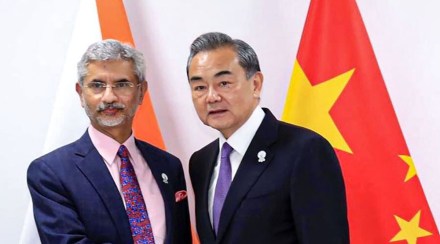On late Thursday evening the Foreign minister of China Wang Yi arrived in New Delhi unannounced, even as the militaries of both India and China are in a 22 month long stand-off along the Line of Actual Control in eastern Ladakh. This is the first ever high-level visit from China since the Galwan Valley incident in 2020.
Top sources confirmed to Financial Express Online “The visiting Chinese Minister will meet National Security Advisor Ajit Doval at 10 am, followed by his meeting with counterpart external affairs minister Dr S Jaishankar at 11 am, before departing for Nepal.”
Will he meet with Prime Minister Narendra Modi?
No, said sources. PM Modi has not met with any foreign minister who has visited New Delhi this week.
Why was the visit kept undercover?
Sharing her view with Financial Express Online from Taiwan, Sana Hashmi, a Visiting Fellow at Taiwan-Asia Exchange Foundation, says, “The visit was kept under wraps because it seems the expectations from the visit are low, especially from the Indian side. This is the first visit of a high-ranking official after the Galwan Clashes. And, India’s position on the issue is clear- the relations won’t be normalised until the border issue is taken seriously.”
Outcome of the visit
“The outcome of the visit depends on what Wang Yi has got to offer. Given he has already crossed the red line during his visit to Pakistan, Wang’s India visit won’t really be momentous”, Ms Sana Hashmi, former consultant to Indian Ministry of External Affairs opines.
According to her, “From the Chinese perspective, it’s an attempt to exploit the situation and take advantage of divergence of views between India & the West. It is important for the Chinese side to understand that such visits or proposals without actions on the border question won’t lead to convergence in India-China relations.”
But, in her opinion, “this is remains a good development as in the shorter term, the focus is on keeping the channel of communication open. By agreeing to Wang’s visit, India is consistent in its approach of keeping the communication going and dealing with the dispute through dialogue mechanisms.”
More about the visit
The Chinese minister flew in from Kabul on Thursday night and the visit comes at a time when there is a geopolitical turmoil because of the ongoing military conflict between Russia and Ukraine.
Also, his visit comes at a time when the armies of both sides are locked in a stand-off and the recent round of high level military talks failed to find amicable solutions for early disengagement.
The Ministry of External Affairs in New Delhi as well as the Chinese side had not talked about the visit till he landed in India.
Besides the global issue, the two sides during two meetings on Friday are expected to focus on the military standoff and India is expected to push for a faster complete disengagement of troops from the remaining friction points in the eastern Ladakh region.
When Mr Wang Yi will meet with NSA Ajit Doval, the talks will be on the boundary issues and both are the Special Representatives (SR) for boundary talks between the two sides.
Will the Russia-Ukraine issue be discussed?
Yes. As that is the biggest global crisis that has got every country’s attention and unlike many leading powers, India has abstained from voting at the UN platforms and has not criticized Russia for its attacks on Ukraine.
Wang in Islamabad
When in Islamabad, the Chinese minister had made comments referring to Jammu and Kashmir at a meeting of the Organization of Islamic Cooperation. The venue of the meeting was Islamabad and India has already rejected the uncalled for comments by the Chinese minister, where he was a special guest.
The Chinese minister was also in Kabul before arriving in New Delhi. In Kabul he met with the Taliban leaders.
After his talks in New Delhi, he will be leaving for a three days visit from March 25-27 to Kathmandu, Nepal.
Russia & China
China has offered to help Russia to deal with the sanctions imposed by the US, and other countries. It has been sending signals that it will help Moscow with the economic sanctions that are hurting it since it attacked Ukraine.
Interestingly the visit by the Chinese minister comes close at the heels of the recently concluded virtual India-Australia summit, last weekend, Prime Ministers of India and Japan had met in New Delhi. In both the meetings China also featured, as both Australia and Japan are members of the QUAD and the members are working towards a free, stable and peaceful Indo-Pacific Region.
On Monday, Prime Minister Narendra Modi had told PM Scott Morrison of Australia that for normalization of relations with China, peace and tranquility in eastern Ladakh, is an essential prerequisite.
As has been reported in Financial Express Online earlier, both Dr S Jaishankar and his Chinese counterpart have met a couple of times since 2020, in an effort to diffuse the tensions in eastern Ladakh. The meetings had taken place in Moscow and Dushanbe.
